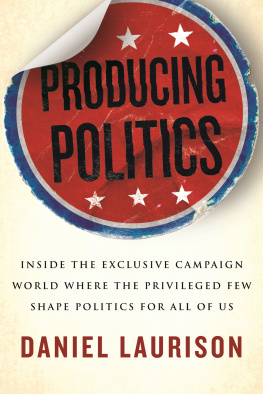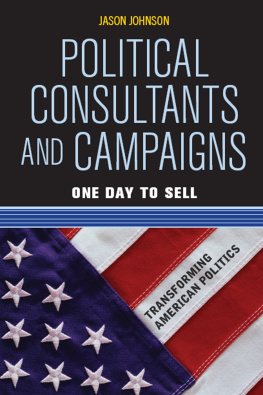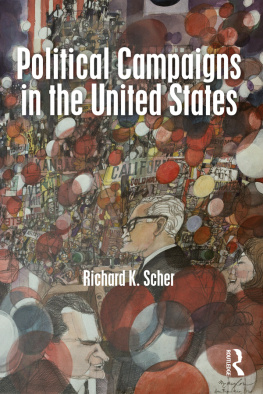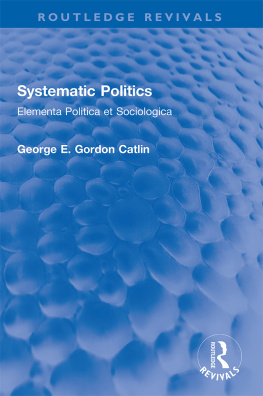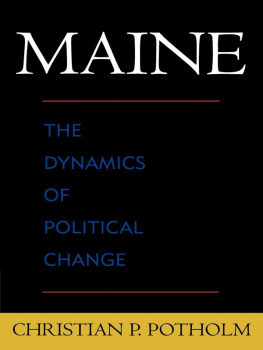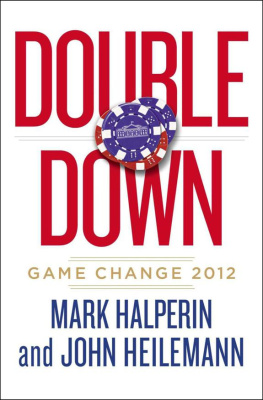Political Merce n aries
The Inside Story of How Fundraisers Allowed Billionaires to Take Over Politics
Lindsay Mark Lewis
with Jim Arkedis

The author and publisher have provided this e-book to you for your personal use only. You may not make this e-book publicly available in any way. Copyright infringement is against the law. If you believe the copy of this e-book you are reading infringes on the authors copyright, please notify the publisher at: us.macmillanusa.com/piracy .
Contents
Prologue
I made my first political fundraising call in June of 1992. Over the next fifteen years, I would be responsible for raising over $200 million for the Democratic Partys candidates, committees, and causes. I would raise money to support Democrats at every level of elected office: a mayor, congressional representatives, senators, governors, and a presidential candidate.
When I started in 1992, the professional fundraising industry didnt exist. Fewer than twenty people had full-time jobs raising money for Democrats in the House and Senate; today that number well exceeds four hundred, and for a reason. As we raised more and more money, I watched the fundraiser go from being an outsider to being the most influential person on a politicians staff, with control over schedule (the politicians time) and those who could influence policy, all because of the chase for political money. It has evolved from a part-time effort into a 365-day-a-year obsession.
During my fifteen years as a fundraiser, I learned how to work over donors, how to gamble, how to skirt campaign finance disclosure rules, how to buy drugs, and how to cover up contributions from a murder victim. I learned how to use a member of Congresss wife as my drug mule. Most fundraisers havent done everything Ive done or seen everything Ive seen. But they all know how the political money system pays them well and they want it to keep growing.
I witnessed the amount of time a member of Congress spent raising money increase dramatically. Time members spend raising money is the biggest problem in American politics today. In 1992, members raised money for about fifteen hours a year. Today, its at least fifteen hours a week. In 1992, the threshold to be considered a viable candidate was to raise $200,000 during the entire election. That was enough to make the race competitive and get out the campaigns message. Today, viability begins at $1 million and is much more if a candidate is running in an expensive media market. In Philadelphia, for example, a candidate needs $2 million or doesnt have a fighting chance.
Being a member of Congress in 1992 is nothing like being a member of Congress in 2014. In the 1980s and early 90s, Members of Congress spent most afternoons and evenings playing poker, drinking, going to dinner with each otherbipartisanship at its best. In 2014, members cant afford to spend time like that; all available time must be spent appealing to individually wealthy donors, lobbyists, and grassroots true believers. The new focus on the never-ending money chase self-selects those who run for Congress.
I have hobnobbed with the likes of Bill and Hillary Clinton, Kevin Spacey, Dick and Jane Gephardt, Howard Dean, Ted Kennedy, Billy Crystal, Patrick Kennedy, David Stern, Ed Markey, Bianca Jagger, George Soros, Steve Wynn, Ed Asner, Terry McAuliffe, Norman Lear, and countless extremely wealthy and important individuals youve never heard of... but only because I could raise political money.
Some of the folks Ive dealt with, like former senator Bob Torricelli of New Jersey, ended their careers in disgrace after taking illegal contributions. Others, like former Louisiana congressman Bill Jefferson, donor-raisers like John Huang, or strip club owners like Rick Rizzolo, ended up in trouble with the law.
But most important, I helped a few hundred rich, liberal elites take over the Democratic Party, not only by the money they raised and the time they spent with politicians, but by allowing them to control the levers of the Democratic agenda. Bill Clinton was elected president in 1992 and raised The new money in the Democratic Party ended up yielding $1.07 billion for President Obamas reelection in 2012: money given directly to his campaign, to the Democratic National Committee, but not to outside, unaccountable super political action committees (super-PACs): a mere 2000 percent increase in twenty years.
Many books and articles have been written about the influence of money, the lobbying industry, or the obnoxious political greed of a few wealthy Republicans in recent years. They have all missed the real story: To compete with Republicans ability to raise money, Democrats sold out not to corporate or lobbying interests but to a very few liberal wealthy elites. The new defensive explanation from Democratic leadership, fundraisers, and super-PACs is simply that theyre playing within the system, or our billionaires are cleaner than Republican billionaires. They arent, and they have driven the partys priorities to reflect their personal beliefs.
I saw this coming in the late 90s and spent my last few years inside the partys apparatus trying to defeat the onslaught of self-selected monied elites. I failed.
The Howard Dean insurgency seemed to offer hope. Under his tenure as chair of the Democratic National Committee, I became the Democratic Partys top fundraiser, a job many would relish. I didnt. I wanted to use the position to take my shot at changing a system Id helped build. I oversaw the creation of sustainable, online low-dollar donations, which I thought would dilute the influence of mega-donors and provide a real seat at the table for all Democrats.
It proved to be fools gold. The race to the bottom to attract small donors has done more damage to both parties in the last ten years and is the biggest contributor to partisan bickering today.
In June of 2007, fifteen years after making that first fundraising call, I finally quit party fundraising forever.
This Wasnt how I thought it would all turn out. I grew up in a liberal 1980s family. At various times, my family worked for Ralph Nader, ACORN, Greenpeace, and US PiRG. We spent Saturdays protesting, whether at the South African embassy over apartheid, or somewhere else over another tree-hugging flavor of the month.
My father marched on Selma, Alabama, the entire family marched on Washington. I got beat up on my first day in high school for wearing a Mondale/Ferraro button. My first hand-me-down records were the Grateful Dead, Pete Seeger, and Arlo Guthrie. When I was a freshman at the University of MarylandBaltimore County, I moved into subsidized housing, just to prove a point: I wanted to bridge the racial divide in America. Being a good liberal was in my blood.
My mother is an education writer and took me on a trip as a seven-year-old to meet Harry Briggs in South Carolina. It was a long drive through cotton fields that seemed like it was taking all afternoon. Mr. Briggs handed me a nice tall glass of iced tea, then I went outside to play basketball with the neighborhood kids. I was the only white person there, but that didnt mean anything to me. Years later, I found out Mr. Briggs was a plaintiff in the Supreme Courts first major case on school desegregation. (His case was later lumped into four others to form Brown v. Board of Education. )
Winning at sports was the most important thing as a kid. Its a personality streak that translates quite well to raising political money: You either close the deal or you dont. But rather than searching for the next check, I should have applied that drive to help the middle class.
I played hockey and played it well growing up. I was always a goalie on a mission to win and was a member of the first American youth hockey team to go to the Soviet Union after the Americans boycotted the 1980 summer Olympics. I was never an elite player but at six feet five, international hockey scouts thought I had the makings of an NHL regular. Al Arbour, the coach and architect of the New York Islanders four Stanley Cups in the early 1980s, saw me play a game one day at the Capital Centre before the Islanders took the ice that night. As I left the ice he said, Kid, you could be the next Ken Dryden, something that I will never forget.
Next page


